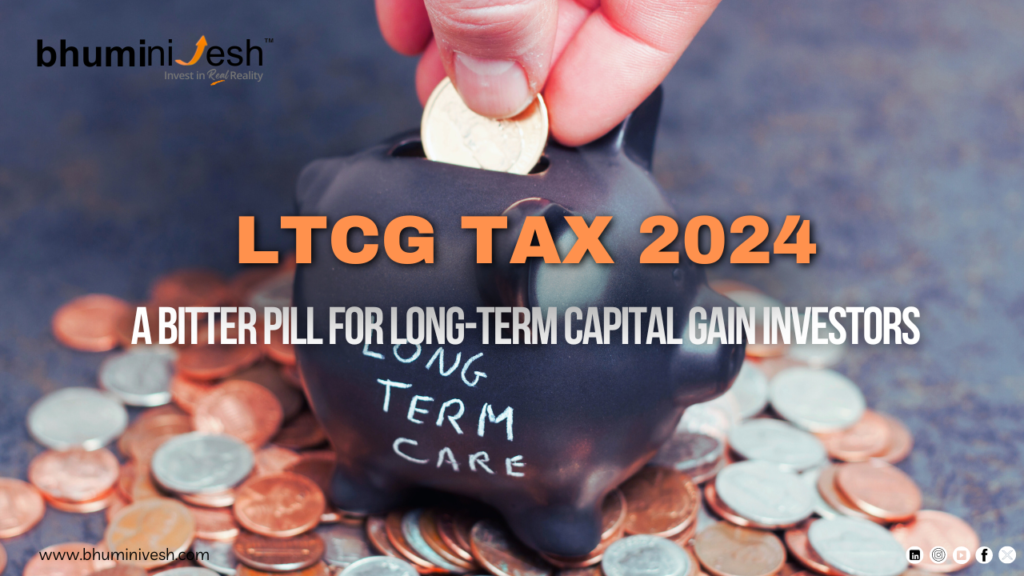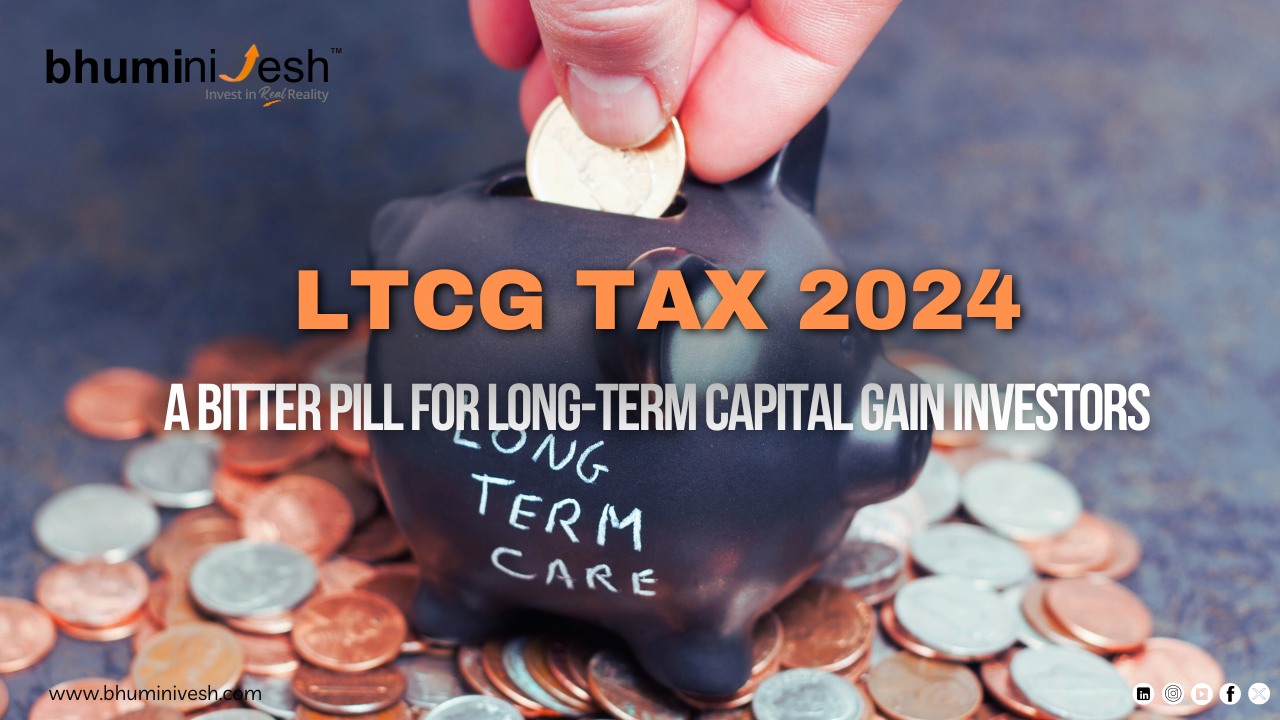
A number of adjustments were included in the Union Budget 2024 with the intention of stimulating the economy and helping different industries. While many of the provisions were well received, long-term capital gain (LTCG) investors, particularly those who have held their assets for a considerable amount of time, are not fond of one specific adjustment.
The budget included some major changes, one of which was the elimination of the indexation benefits for long-term capital gains. This implies that when determining capital gains, the asset’s purchase price won’t be modified for inflation. Although the government lowered the long-term capital gains (LTCG) tax rate from 20% to 12.5%, the loss of indexation has more than offset this reduction, increasing the tax burden for many investors.

Understanding Indexation
Let’s first examine indexation to better comprehend the implications of this move. One way to account for inflation in an asset’s acquisition price is through indexation. The capital gains are then computed using this modified price. Indexation helps lessen the effect of growing prices on the taxable gains by taking inflation into account.
The Effects of Indexation Removal
For long-term investors, especially those who bought their assets several years ago, the loss of indexation is especially harmful. The real purchasing power of the initial investment has decreased since inflation has eroded the rupee’s worth over time. The government is essentially taxing the gains from inflation rather than merely the actual growth in the asset’s worth when the purchase price isn’t adjusted for inflation.

Impact of Removal of Indexation on LTCG
Scenario: Property Purchased in 2001
Purchase Price: Rs. 1 crore
Sale Price: Rs. 4 crores
Holding Period: More than 23 years (long-term capital gain)
Before Removal of Indexation
Indexation Benefit: Applicable as the property was purchased before April 1, 2001.
Calculation:
➡️ Assume indexed cost after considering inflation is Rs. 3 crores.
➡️ Long-Term Capital Gains = Sale Price – Indexed Cost = Rs. 4 crores – Rs. 3 crores = Rs. 1 crore.
➡️ Taxable LTCG = Rs. 1 crore * 20% = Rs. 20 lakhs.
➡️ Tax Payable: Rs. 20 lakhs
After Removal of Indexation
Indexation Benefit: Not applicable.
Calculation:
➡️ Long-Term Capital Gains = Sale Price – Purchase Price = Rs. 4 crores – Rs. 1 crore = Rs. 3 crores.
➡️ Taxable LTCG = Rs. 3 crores * 12.5% = Rs. 37.5 lakhs.
➡️ Tax Payable: Rs. 37.5 lakhs

The computations clearly show that the tax due has grown dramatically from Rs. 20 lakhs to Rs. 37.5 lakhs as a result of the elimination of indexation. This is because the entire increase in property value, without any inflation adjustment, is now regarded as taxable income.
Key Points:
• Long-term property owners who bought their homes before April 1, 2001, in particular, suffer greatly from the removal of indexation benefits.
• The increased tax burden can severely reduce the returns on long-term property investments.
• Although the overall LTCG tax rate has been lowered from 20% to 12.5%, the removal of indexation offsets this benefit, resulting in a higher tax liability for many taxpayers.
Watch on Youtube ⬇️
For More Real Estate related videos subscribe ⬇️
Conclusion :
Although it is admirable that the government wants to stimulate the economy, the elimination of indexation for long-term capital gains is a step in the wrong direction. Long-term investors who have aided in the expansion of the economy through their investments are penalized. Long-term investors should receive relief from the government by having this decision reevaluated and indexation benefits reinstated.
To maximize their tax planning methods, investors must carefully assess how this move may affect their portfolios and think about consulting a tax professional.
Disclaimer: This information is not expert tax advice; rather, it is meant to be general knowledge and informational only. Seeking counsel from a skilled tax specialist that is customized to your unique circumstances is imperative.


